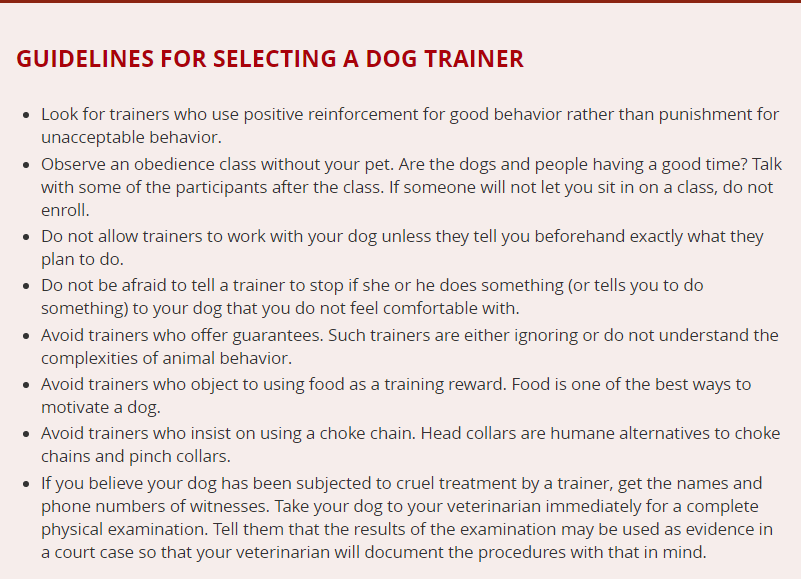Many dog owners, fortunately, do not need an animal behavior scientist, veterinary behaviorist or other highly skilled behavior professional. A lot of dog owners need a highly skilled trainer (learn the difference between professions by clicking here). So what is the best way to find a science-based trainer that is going to be effective and humane?
The Merck Manual has a quote I cannot stress enough… “avoid trainers who offer guarantees. Such trainers are either ignoring or do not understand the complexities of animal behavior.” Even as an animal behavior scientist with formal education, I cannot offer guarantees. I can only recommend a general amount of sessions based on the issue(s) at hand, we cannot guarantee resolution of a behavior by a certain date, time frame, etc. It is unethical. Nor is it fair to the animal. The time frame for behavior modification is heavily dependent on the animal(s). The animals deserve to be able to tell us how much “work” they need and want. We determine our speed by how they react.
Here are the Merck guidelines we support: 
Here at Ludar Animal Behavior, we use science-based techniques because they are proven via data (or evidence) to not only be effective but the most humane for the animals. At the end of the day, the animals are our primary concern. We are here to advocate for them.





